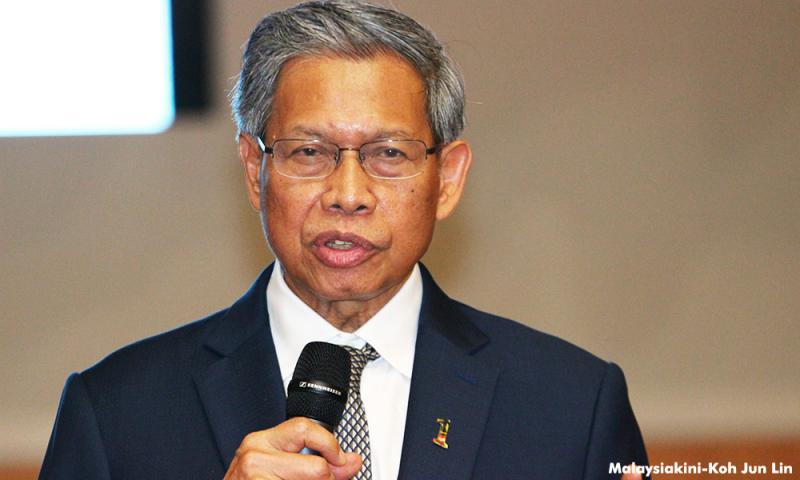Malaysia has been ranked 25th out of 138 economies, down from 18th last year, but remains the most competitive economy among developing countries in Asia.
According to the Global Competitiveness Report (GCR) 2016-2017, unveiled by the World Economic Forum (WEF) today, in terms of score, its performance came down from 5.23 to 5.16 out of a maximum of seven.
Malaysia remains ahead of economies such as South Korea, Iceland and China, but was overtaken by Belgium, Austria, Luxembourg, France, Australia, Ireland and Israel, said the report.
Meanwhile, countries and territories that also slipped in their rankings included Germany, Japan, Hong Kong, Finland, Canada, France, Thailand, Indonesia and the Philippines.
In a statement today, International Trade and Industry Minister Mustapa Mohamed said it was important to note that all countries ranked above Malaysia were developed and high-income economies.
The GCR is an annual report published by the WEF based on the Global Competitiveness Index (GCI) that combines 114 indicators that integrate both macro and micro economic aspects of competitiveness.
These indicators are grouped into 12 pillars comprising Institutions, Infrastructure, Macroeconomic Environment, Health and Primary Education, Higher Education and Training, Goods Market Efficiency, Labour Market Efficiency, Financial Market Development, Technological Readiness, Market Size, Business Sophistication and Innovation.
The GCI is based on statistical data from internationally recognised organisations for 30 percent or 34 indicators.
For the rest of the 80 indicators, qualitative assessments were made based on the WEF’s Executive Opinion Survey.
Overall, the GCR ranked Switzerland as the most competitive economy in the world for the eighth consecutive year, ahead of Singapore and the United States, followed by the Netherlands and Germany.
Mustapa said Malaysia is ranked in the top 50 in each of the total 12 pillars, despite the decline in eight of them.
Malaysia performed most strongly in Goods Market Efficiency (12th) and Financial Market Development (13th) while in the Technological Readiness pillar, it advanced by four places to 43rd, and Market Size pillar gained two positions to 24th, he said.
Mustapa said external factors beyond the control of policymakers were partly responsible for the decline in Malaysia’s ranking.
“The global economic uncertainty, the strong US dollar, the fall in commodity prices and the slowdown in China’s economy are beyond our ambit.
“There is also the issue of perception due to irresponsible act of certain parties which continue to spread unfounded and baseless allegations about domestic political developments and the state of our economy,” he said.
In fact, Malaysia remained politically stable and its economic fundamentals remained strong, thus this perception issue must be taken seriously and the government would continue to engage with various stakeholders to address it, he said.
‘Taking necessary measures at a much faster pace’
Although the latest ranking is disappointing, Mustapa said it strengthened the government’s resolve to undertake necessary measures at a much faster pace to improve the country’s competitiveness.
He said as pointed out by the WEF for emerging economies, updated business practices and investments in innovation are now as important as infrastructure, skills and efficient markets.
The government would address the shortcomings highlighted in the report and consolidate efforts across ministries towards maintaining Malaysia’s status as a preferred investment destination, he said.
Malaysia will also continue to benchmark itself against the best performers in the report.
Malaysia has already addressed areas such as improving productivity and enabling innovation especially in small and medium enterprises (SMEs).
The nation was also revolutionising the manufacturing services, enhanced automation and digitalisation to increase efficiency, optimisation of logistics and making prices more transparent and competitive, he said.
The government, he said, was also preparing the SMEs against the backdrop of a more open environment and numerous free trade agreements that the country is resolved in, as well as the deeper economic trade integration in Asean.
The government is working closely with experts and industry players in finalising the Malaysia Productivity Blueprint to address issues and challenges on productivity in a comprehensive manner.
He urged the companies to innovate fast as the private sector would define the country’s competitiveness.
The report also underscores the importance of avoiding the middle-income trap by placing increasing attention to business sophistication and innovation.
On this note, Mustapa said innovation was the name of the game that Malaysia would continue to embrace.
“Several strategies which are being implemented to promote innovation at enterprise and societal levels under the 11th Malaysia Plan are expected to enhance the national innovation ecosystem.
“Hopefully, this will help us to improve our ranking in the coming report,” the minister added.
Going forward, Mustapa cautioned that the competition would become more intense in the years ahead as all countries are working towards lifting their competitiveness.
Technology enabled platforms, such as sensors that ease sharing and on-demand economies, were disrupting business models and forcing countries to rethink how they formulate economic policies, he said.
Both the government and the private sector needed to work more closely with each other to create a more competitive environment, he added.
- Bernama






